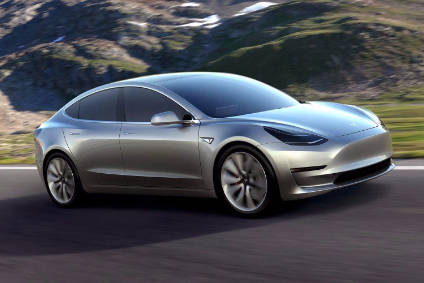
Tesla said in a regulatory filing it had set a production target of 3,000 Model 3 sedans per week in the early stages of operation at its planned factory in China, according to local reports.
This followed news last month it had acquired an 865,000 sq m plot of land in the Lingang area, about 50 miles (80km) south of central Shanghai, for a US$2bn 500,000 units a year manufacturing plant.

Discover B2B Marketing That Performs
Combine business intelligence and editorial excellence to reach engaged professionals across 36 leading media platforms.
The first phase of construction is expected to begin in 2019, bringing online an initial production capacity of 250,000 EVs and battery packs per year by 2022.
The company also revealed it plans to spend up to US$6bn on factories and equipment worldwide over the next two years, including on its planned Shanghai plant.
Tesla stressed, however, there was no specific deadline for the Shanghai factory due to uncertainties such as regulatory approval and supply chain constraints.
But the company sees local Chinese production as essential to bringing down its Model 3 prices in the world’s largest and fastest growing EV market, particularly with other global vehicle manufacturers stepping up their own Chinese production plans.
China hiked tariffs on US vehicle imports to 40% in July in retaliation to similar moves by the US government.
China is said to be working towards a goal of switching its new car market entirely to new energy vehicles by 2030, most of which are expected to be electric vehicles. A total of 28m vehicles was sold in the country last year.






